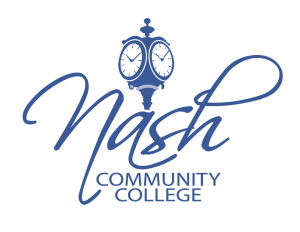Community College Presidents Advocate for Continued State Support

NCC President Dr. Lew Hunnicutt, right, with Representative Matthew Winslow at the General Assembly during Community College Day June 8, 2022

NCC Trustee Sam Dickens, left, and NCC President Dr. Lew Hunnicutt, right, with Senator Lisa Barnes at the General Assembly during Community College Day June 8, 2022
“Our funding per student is 54 percent of the funding for UNC system freshman and sophomore students in comparable classes,” NCC President Lew Hunnicutt said. “Our request is designed to work towards better equalizing that number based on the return North Carolinians see from community college graduates. If approved, this percentage would increase bringing that number to 67 percent. This would be a great start in recognizing community colleges as the driving force for recovery in the state.” An investment of $145.4 million will increase resources for colleges to be more innovative, better supporting students through to completion. This funding will support development and implementation of new programs to meet current local employer needs and increase courses in high-demand careers including nursing, truck driving, cybersecurity, industrial technology and other specialties. Program expansion, student support in high schools, additional mental health services, improved advising and technology upgrades are also among the colleges’ critical needs.
Trustee Sam Dickens joined Hunnicutt representing Nash Community College. Dickens has served as a member of the Board of Trustees since 2000, including four years as chair. He is also chair of the North Carolina Association of Community College Trustees (NCACCT) Executive Committee. Dickens cites funding and enrollment as the two main issues facing NC community colleges. “We want our colleges to remain relevant and able to serve the educational and workforce demands of the community,” Dickens said. “However, funding is needed to support those desires. If we do not have the personnel, we can’t get funding. And without funding, we cannot hire and retain the people we need.”
The state’s investment of $99.2 million will ensure colleges have the faculty and staff to support students through to completion and continue to graduate a highly educated, well-trained workforce for North Carolina. The need for competitive salaries at community colleges has never been more critical. Since July 2020, 79 percent of the 58 colleges have been unable to fill vacant positions. Ninety-five percent of the colleges lost employees due to noncompetitive salaries and 1,222 faculty and staff employees left for higher salaries. The impact of these lost employees and unfilled positions runs deep across colleges in the state. Loss of expertise, talent and knowledge in high demand professions will reduce instructional and institutional quality if these vulnerabilities are not addressed.
Presidents are requesting the legislature build on the five percent employee salary increases from the 2021-23 budget, with an additional recurring eight percent over the next three years bringing employee salaries to the projected average of the four states neighboring North Carolina. These recurring increases would be applied to all community college employee salaries.
“I am appreciative of the support our Nash County Delegation to the General Assembly continues to provide for Nash County, particularly Nash Community College,” President Hunnicutt said. “Their unified commitment to, and understanding of, the true value of community colleges in our state is refreshing.”
During the legislative visit, state community college leaders visited both the Senate and House floors and were recognized by the full General Assembly.









